Passato Prossimo with Essere

You have already studied the use of the auxiliary avere in the passato prossimo (see Unit 5). Now you are going to learn when and how to use the auxiliary essere. It is simple: intransitive verbs (those that do not take a direct object, see Unit 5) go with essere. These verbs usually express movement (andare ‘to go’, venire ‘to come’, uscire ‘to go out’), a state of being (stare ‘to stay’, essere ‘to be’, rimanere ‘to remain’), or a change of state (diventare ‘to become’, nascere ‘to be born’, morire ‘to die’). All reflexive verbs (lavarsi ‘to wash oneself’, alzarsi ‘to get up’, vestirsi ‘to dress up’) go with essere as well.
While it is a good idea to keep these rules in mind, it may also be helpful to memorize some common verbs that go with essere. Use La casa del verbo essere:
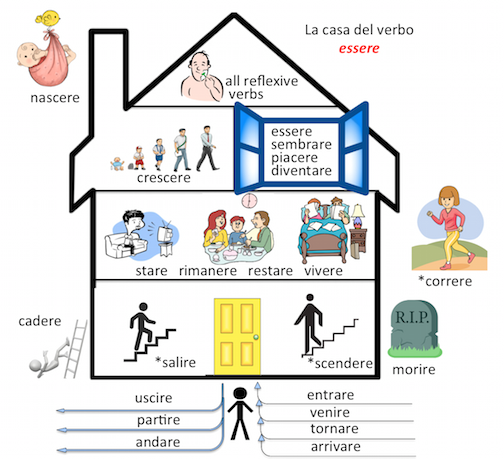
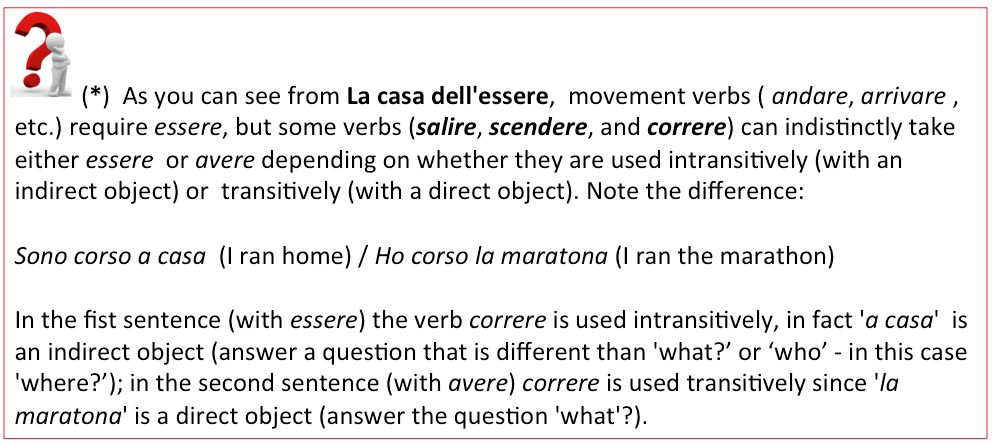
One very important thing to know about verbs conjugated with essere (unlike the verb avere) in the past is that their participles agree in gender and number with the subject (the person doing the action):

As said, all the reflexive verbs require the verb essere to form the passato prossimo, so their participles agree in gender and number with the subject:

Here the verbs andare and lavarsi (reflexive verb) are used as model verbs
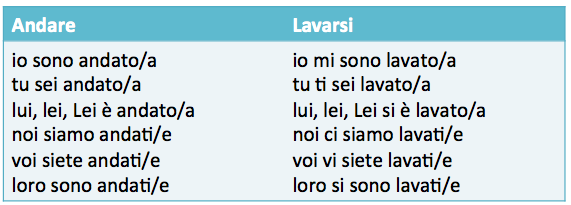
![]() Complete the sentence with the correct passato prossimo of the verbs in parentheses
Complete the sentence with the correct passato prossimo of the verbs in parentheses ![]()
Un anno fa i miei genitori in vacanza in Italia. (andare)
Ieri io e i miei amici in classe con un’ora di ritardo. (entrare)
Come ; sei proprio una bella ragazza! (crescere)
Mio cugino un calciatore professionista a 18 anni. (diventare)
Perché Anna non alla festa ieri? Noi moltissimo. (venire / divertirsi)
Questa mattina Annamaria tardi e a lavoro in ritardo. (alzarsi / arrivare)
Il nostro viaggio bellissimo, (noi) tanto. (essere / divertirsi)
Un mio amico dalle scale e una gamba. (cadere / rompersi)
Marco a casa a prendere le chiavi dell’auto. (correre)
![]() Change the verb in parentheses to the passato prossimo
Change the verb in parentheses to the passato prossimo ![]()
Ieri Carla (alzarsi) tardi.
Ermanno (arrivare) alla stazione di Milano.
Stefano, quando (andare) a Roma l’ultima volta?
Oggi Rita (restare) a casa tutto il giorno.
Quando (partire) le studentesse americane?
I miei figli abitano in America, ma (crescere) in Italia.
In un anno appena quest’albero (diventare) molto alto.
![]() Essere or Avere? Choose the correct auxiliary
Essere or Avere? Choose the correct auxiliary ![]()
Ieri Maria incontrato Mario in piazza.
Io non mai stato in Francia.
Maurizio andato in crociera.
Ieri Rita visto un bel film.
Loro avuto molto successo.
Questa mattina io fatto una bella passeggiata nel parco.
Lo scorso anno ci sposati.
![]() “L’Italiano da strada“: find the mistakes and correct them
“L’Italiano da strada“: find the mistakes and correct them![]()
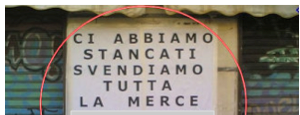
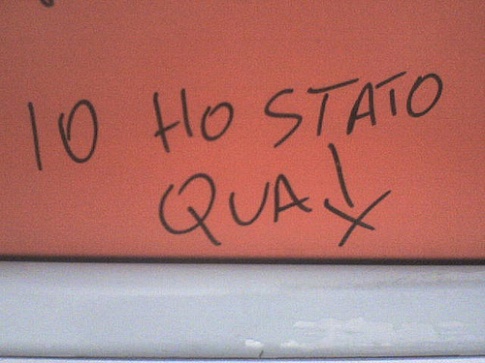
![]() &
&![]() Listen to the song La Compagnia (by Vaso Rossi) and write all the verbs in passato prossimo you hear (including passato prossimo with avere). Pay attention to the reflexive verbs
Listen to the song La Compagnia (by Vaso Rossi) and write all the verbs in passato prossimo you hear (including passato prossimo with avere). Pay attention to the reflexive verbs ![]()
Ora cercate le parole che nella canzone esprimono “felicità” e “tristezza”
